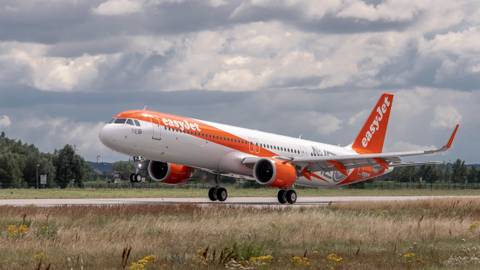
easyJet Found Liable for Injuries Sustained by Paraplegic Passenger During Disembarkation
May 20, 2022
In a recent ruling, the Outer House of the Court of Session determined that easyJet is liable for injuries sustained by Colin Mather, a paraplegic passenger who fell from a wheelchair while disembarking at Hamburg Airport in May 2017.
Incident Details
Colin Mather, 56, from Edinburgh, boarded an easyJet flight to Hamburg on May 15, 2017. Upon arrival, assistance personnel from DRK Hamburg Mediservice GmbH transferred him to an airport wheelchair, as his personal wheelchair was stowed in the aircraft’s hold. While being pushed along the air bridge towards the terminal, the wheelchair abruptly halted at the junction where the air bridge met the terminal building, causing Mr. Mather to be thrown onto the marble floor inside the terminal. As a result, he suffered fractures to both legs below the knee.
Legal Proceedings
Mr. Mather pursued legal action against easyJet, citing liability under the Montreal Convention 1999, which governs airline responsibility for passenger injuries during international carriage. easyJet contended that the accident was solely caused by the negligence of the DRK employee pushing the wheelchair and sought a contribution from DRK in the event of liability.
Court’s Findings
Lord Uist, presiding over the case, concluded that DRK was acting as an agent of easyJet during the disembarkation process. He stated, “The services provided to easyJet were in furtherance of the contract of carriage by assisting Mr. Mather to disembark the flight.” The court found that the DRK employee failed to notice the ridge at the junction, leading to the accident. Consequently, easyJet was held liable for unlimited damages, as it could not prove that the injury was not due to its own negligence or that of its agents.
Appeal Outcome
In February 2023, the Inner House of the Court of Session refused easyJet’s appeal against the initial decision, upholding that the airline was responsible for the full £1 million claim for damages. The court reaffirmed that the assistance provided during disembarkation was part of the contract of carriage, and those assisting passengers were acting as agents of the airline.
Implications
This ruling underscores the responsibilities of airlines under the Montreal Convention, emphasizing that carriers are liable for the actions of their agents during the disembarkation process. It highlights the importance of ensuring that all personnel involved in assisting passengers are adequately trained and vigilant to prevent such accidents.